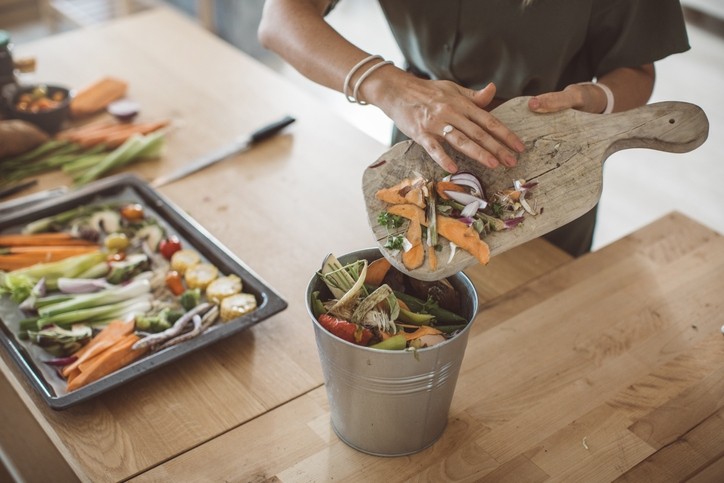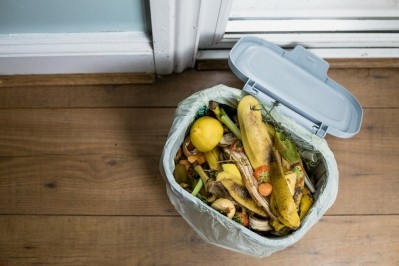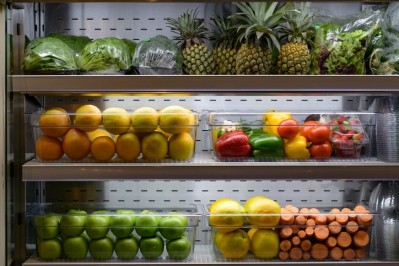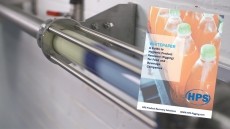Most of it comes from our homes… so what role, if any, can food manufacturers play in helping to minimise food waste?

Food waste is bad news for food security, the global economy, and the environment. It’s now a familiar statistic that around one-third of all food produced is lost or wasted each year. So much so that if food waste were a country, it would, due to the release of harmful greenhouse gases into the atmosphere as it breaks down in landfill sites, be the third biggest emitter behind the US and China. Nearly 60 million tonnes of food waste is generated each year in the EU alone. Policymakers are taking action, and food and beverage makers may be forced to take heed.
But well over a third of global emissions from food wastage is from food discarded by consumers. UK charity WRAP estimates that as much as 70% of post-farm food waste occurs in the home, with the average household in the UK throwing away the equivalent of around eight meals a week. This suggests simple steps from people to prevent wasting food in their homes by not, for example, overbuying food or making use of leftovers, would go a significant way to reduce the impact that the food system has on the environment.
The role for companies
Given this, how can large food companies offer practical solutions for consumers? "There's definitely a role we can play,” said Danone UK and Head of Sustainability and Social Impact Hannah Cornick. Date labelling is one area. Speaking at FoodNavigator’s recent Climate Smart Food summit, the biggest causes of food waste in the home tend to be food not being used in time, she explained, and going off or passing its use-by date. This accounts for around half of avoidable food waste in the home. The other causes tend to be cooking or serving too much.
The big problem, of course, is confusion around date labelling on products. To tackle the problem of perfectly safe food being thrown away by consumers, in 2021 Danone began putting ‘best before’ rather than ‘use by’ dates on all of its Danone Essential Dairy & Plant-based product range, which includes brands such as Activia, Actimel, Light & Free, and Oykos.
It also added a ‘Look, Smell, Taste, Don’t Waste’ icon to yogurt packs – a partnership with Too Good To Go. This is an app which aims to tackle the issue of food waste by connecting restaurants, shops, cafes and event venues that have surplus food to people willing to buy it at a discounted price and prevent it being thrown away.
"This collaboration encourages people to use their senses more to tell if food is safe,” explained Cornick. "It's something that should be intuitive, but we’ve [as consumers] got out of the habit. The campaign means consumers can have the confidence to make those judgements about what is safe to eat."
The business case for helping consumers cut waste
There’s a business case for giving solutions and education to shoppers, she argued. “Consumers are focussing on food waste and there is growing awareness [of it],” she said. It’s also an issue that ultimately people feel in their wallets. “They don't want to throw good food away and waste money. Equally I think people are starting to realise their environmental impact and that it's one of the ways they can reduce their personal carbon footprint.”
“We see that consumers want to take action on this but are also looking to brands and businesses to help. It’s mostly really positively received by people, and it's definitely one of the ways that we feel that as a business looking to use our presence as a force for good, we can support our consumers to be more sustainable as well.”
An environmental and business priority
Danone also regards the issue of food waste as an environmental and business priority. The company estimates around a billion tonnes of food is wasted every year costing the global economy around $750 billion dollars annually. It aims, as per the UN sustainable development goal, to halve its food waste by 2030. It also supports calls for the reporting of food waste to be made mandatory for large businesses in Europe. "At Danone UK and Ireland, we don't send any food waste to landfill, and [we] want to make sure we can prevent as food from becoming waste in the first place,” said Cornick. “If we do end up with surplus food that can't be sold, we make sure that gets to humans or animals. That wasted food is wasted resources and wasted cost to our business."
Last year, Danone UK and Ireland donated the equivalent of one million meals to people in need via charities like FareShare, FoodCycle and FoodCloud. Among the ways it has been looking to reduce waste from its own operations include using waste management technology in factories. At its baby formula factory in Wexford in Ireland it has started using an x-ray machine that would normally be used to detect foreign bodies to check how its filling products to minimise waste. The best practices will be shared with Danone’s global network of factories.
The food giant is also looking to improve logistics so that products can get to shop shelves efficiently and enjoy as long a shelf life as possible. It also works with retailers daily to manage forecasts for supply and demand so that it only produces enough food as is going to be needed.
“With all parts of the supply chain work together and by taking responsibility beyond your own direct control, we can use our influence as a force for good,” said Cornick. “For us, reducing food waste is good for the planet, it's good for consumers and it’s good for our business. If we all come together across that food chain and all play our part, then we do stand a chance of hitting that goal."















